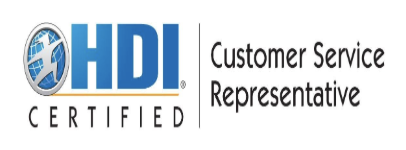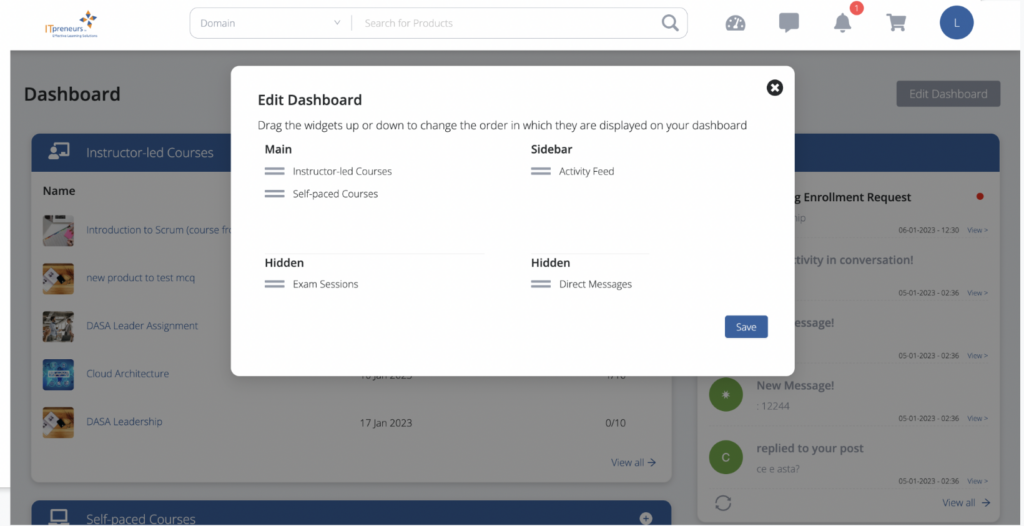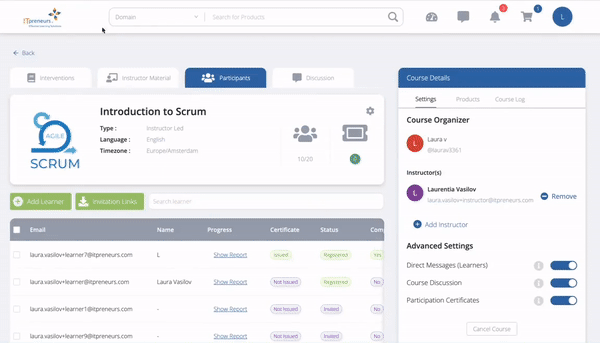In many organizations, the IT function has moved from being only a back-office function. It is working alongside the business to drive innovation. Many IT leaders are expecting their teams to have the relevant soft skills to supplement the technical skills of IT professionals. But what are soft skills and how can you help develop them as a training provider?
Solving Problems and Communication
Last week I wrote about the survey which Robert Half conducted. The survey showed that CIO’s mentioned two important soft skills: problem-solving skills and communication skills. As I wrote about problem-solving skills in the previous post, I’d like to focus on communication skills in this post.
If you’d like to read up on soft skills, have a look at this article from the Omnia Group about the 7 soft skills your clients (participants) need to be successful.
- Communication: Speaks to both technical and nontechnical audiences with ease.
- Problem-solving: Understands complex business issues and how to solve them through technology.
- Collaboration: Leverages the strengths and unique perspectives of others within the organization and works with all stakeholders to reach a solution.
- Team-oriented: Works effectively and thrives as a member of various workgroups to bring greater value to the overall organization.
- Creative: Finds new and innovative approaches to performing the business at hand.
Communicating in Non-Tech Speak
So, what are communication skills? Well, to start, it consists of both listening and speaking skills. Successful communication is a two-way street. And you can think of written communications as well as verbal communications. Both are very relevant.
In the situation about technical professionals, they are very used using technical terms which may not be easily understood by the non-technical people. As IT professionals are working more with the business, the ability to interact with diverse stakeholders becomes crucial. To do this effectively, IT profs need to do this in non-tech speak.
Training for Communication Skills
What other requirements are there for communications? How do you get people to improve communications skills? So if you are a training provider, looking to help IT organizations improve communication skills, which options do you have. Well, you have many options.
One of them is ITIL® Practitioner which was launched earlier this year. You will find that communications along with organization change management and measurement and metrics have been identified as the three key areas important for success in any change initiative. For communications, you will find topics including communication principles, the purpose and value of communication and relevant communication tools and techniques.
To learn more about the values of ITIL Practitioner to ITSM professionals, I invite you to read this guest blog by Kaimar Karu.
Another one is HDI. HDI is the world’s largest IT service and technical support membership association. It is also the industry’s premier certification and training body. Quality technical support depends not only on specialist know-how but also on problem-solving and communication skills. The HDI certification exams are based on HDI certification standards. The competencies for the certification standards are identified and approved by the HDI International Certification Standards Committee (ICSC). It consists of a group of industry experts and experienced practitioners from a number of organizations.
As an example, you will find in the Customer Service Representative Course, there is one unit that is focused entirely on communication skills covering the communication process, cultural sensitivity, vocal elements, listening skills, writing skills and how to document incidents. What you will find interesting is the fact that HDI certifications are based on job roles. Each certification is targeted at the skills needed per job role in a Technical Support Center.
Role-based certifications on Support Center
You will find a broad portfolio of training and certification that relates to the job roles in support centers. Communication skills are covered in nearly all the courses in the HDI portfolio. Have a look at the matrix below.
If your IT training portfolio heavily leans towards developing technical skills, it’s time to rethink the relevance of soft skills development. CIOs expect their staff to have both!
Our courseware library features many titles in the IT best practice domain which helps to connect IT with management skills. And the best of all, they are complementary to many vendor-specific technical training.
The best of both worlds.
About the author

Driven and resourceful digital marketing professional with a passion for technology and workforce upskilling. I enjoy working in a fast-paced dynamic environment. My experience to date includes working in technology companies as well as professional training/higher education. With the rising skills gap, there has never been a more exciting time to work in an industry that supports organizations to develop the workforce at scale to leverage opportunities created by digital transformation.




